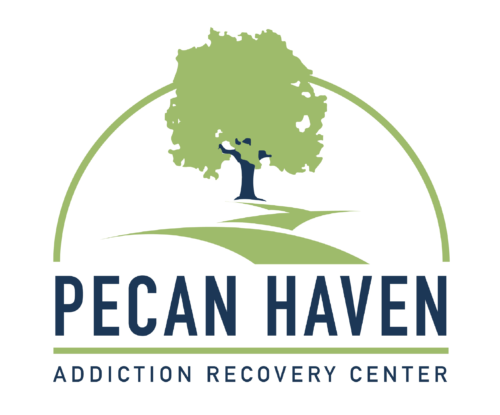Understanding Alcohol Addiction
Alcohol addiction, also known as alcohol use disorder (AUD), is a chronic and progressive condition that affects millions of individuals and families. It is characterized by an inability to control alcohol consumption despite negative consequences.
Many people with alcohol addiction struggle to recognize the severity of their drinking habits. Since alcohol use is often socially acceptable, the line between moderate drinking and addiction can be blurred. However, identifying the early signs of alcohol addiction and understanding treatment options are crucial steps toward recovery.
If you or someone you love is struggling with alcohol addiction, recognizing the warning signs and seeking professional help can make all the difference.
Common Signs of Alcohol Addiction
Recognizing alcohol addiction can be challenging, but understanding key behavioral, physical, and emotional indicators can help identify a problem before it worsens.
1. Increased Tolerance
One of the first signs of alcohol addiction is the need to consume more alcohol to achieve the same effects. Over time, the body adapts to alcohol use, requiring larger quantities to feel intoxicated.
2. Withdrawal Symptoms
When alcohol use is suddenly reduced or stopped, withdrawal symptoms can occur. These may include:
- Shaking or tremors
- Nausea and vomiting
- Sweating and rapid heartbeat
- Anxiety, irritability, or depression
- Insomnia and nightmares
Severe cases may result in delirium tremens (DTs), a dangerous withdrawal condition that causes hallucinations, seizures, and confusion.
3. Loss of Control Over Drinking
If you find yourself drinking more than planned or unable to cut back, this is a strong indication of addiction. Many individuals with AUD make repeated unsuccessful attempts to stop drinking.
4. Neglecting Responsibilities
Work, school, and personal obligations may suffer due to alcohol use. Signs include:
- Frequent absences or poor job performance
- Failing to meet deadlines or complete tasks
- Neglecting household chores or caregiving responsibilities
5. Prioritizing Alcohol Over Other Activities
When drinking becomes more important than hobbies, relationships, or personal goals, it suggests that addiction is taking hold. Social events may revolve around alcohol, and activities that were once enjoyable may no longer seem appealing.
6. Drinking Despite Negative Consequences
Continued alcohol use despite experiencing health problems, financial issues, legal troubles, or strained relationships is a major red flag. This includes getting a DUI, losing a job, or experiencing health-related complications but continuing to drink.
7. Secrecy and Denial
Many individuals with alcohol addiction go to great lengths to hide their drinking habits from loved ones. They may:
- Drink alone or in secret
- Hide bottles or lie about alcohol consumption
- Become defensive when confronted about their drinking
8. Using Alcohol to Cope with Emotions
People struggling with addiction often use alcohol as a coping mechanism for stress, anxiety, depression, or trauma. While drinking may temporarily numb emotional pain, it can read to long-term dependence and mental health issues.
The Consequences of Alcohol Addiction
Alcohol addiction affects every aspect of a person’s life, from physical health to relationships and financial stability.
Physical Health Risks
- Liver disease – Cirrhosis, fatty liver, and alcoholic hepatitis
- Heart problems – High blood pressure, stroke, and heart disease
- Weakened immune system – Higher susceptibility to illness
- Increased cancer risk – Liver, breast, throat, and colon cancer
- Brain damage – Memory loss, cognitive decline, and neurological damage
Mental and Emotional Impact
- Increased risk of depression, anxiety, and suicidal thoughts
- Impaired judgment leading to risky behaviors
- Emotional instability, mood swings, and social withdrawal
Social and Financial Consequences
- Strained relationships with family, friends, and colleagues
- Loss of employment or career opportunities
- Legal issues such as DUI arrests or public intoxication
- Financial strain due to excessive alcohol spending
Seeking Help for Alcohol Addiction
If you recognize these signs in yourself for a loved one, seeking help is the next important step. Alcohol addiction is treatable, and recovery is possible with the right support and resources.
1. Acknowledge the Problem
The first step in overcoming alcohol addiction is acknowledging that alcohol is negatively impacting your life. Many people struggle with denial, but self-awareness is the foundation of recovery.
2. Talk to a Professional
A doctor, therapist, or addiction specialist can assess your situation and recommend the best course of action. They can help you explore treatment options tailored to your needs.
3. Explore Treatment Options
There are multiple paths to recovery from alcohol addiction, depending on individual needs:
- Medical detox – A supervised detox program helps manage withdrawal symptoms safely.
- Inpatient rehab – Residential programs provide structured treatment and 24/7 support.
- Outpatient programs – Intensive outpatient programs (IOPs) offer flexibility while maintaining therapy.
- Medication-assisted treatment (MAT) – FDA-approved medications reduce cravings and prevent relapse.
- Therapy and counseling – Cognitive-behavioral therapy (CBT), group therapy, and support groups help address the root causes of addiction.
4. Build a Strong Support System
Recovery is more successful with support from loved ones, therapists, and peer groups like Alcoholics Anonymous (AA). having a trusted support network can provide encouragement and accountability.
5. Develop Healthy Coping Strategies
Replacing alcohol use with healthier coping mechanisms is essential for long-term sobriety:
- Regular exercise and physical activity
- Practicing mindfulness and meditation
- Engaging in hobbies and creative outlets
- Seeking professional therapy for stress and trauma
Take the First Step Toward Recovery
Overcoming alcohol addiction starts with a decision to seek help. If you or someone you love is struggling, professional treatment can provide the support needed for lasting recovery. At Pecan Haven Addiction Recovery Center, we offer comprehensive treatment programs designed to help individuals achieve sobriety and rebuild their lives.
Our Services Include:
- Residential Treatment Programs – 24/7 care in a structured environment
- Intensive Outpatient Programs – Flexible treatment options
- Residual Detox Programs – Safe withdrawal management
📍 Located in Monroe, Louisiana
📞 Call (318) 600-3333 today or visit Pecan Haven Addiction Recovery Center to being your journey to sobriety. Your recovery starts now.

